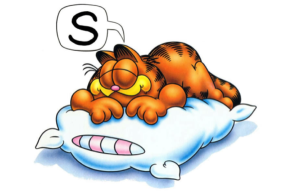
By Diana Rodriques
Getting enough sleep is important for everyone, but it’s especially vital for seniors. Follow these steps to a better night’s rest.
Many seniors deal with a number of health problems related to aging – one in particular is not getting enough healthy sleep. It’s not the advancing of age per se that keeps seniors from a good night’s rest, but various sleep disorders or sleep disturbances that often come with age. As we get older, our sleep patterns change and, for starters, seniors do not spend as much time in deep sleep as younger people do. Common symptoms of sleep disorders are:
- Having trouble falling asleep
- Waking up very early in the morning
- Inability to tell night from day
- Frequent waking at night
WHAT’S KEEPING YOU AWAKE AT NIGHT?
Many seniors have problems sleeping because of health conditions – as well as their associated symptoms and medications. Some common senior health issues that can prevent you from getting healthy sleep include:
- Side effects of prescription medications
- Chronic pain, often from health conditions like arthritis
- Depression
- Alcohol consumption
- Not getting enough exercise
- Snoring
- Alzheimer’s disease or a neurological problem
- Caffeine consumption
- Frequent urination during the night
BIOLOGICAL ISSUES THAT CAN CAUSE SLEEP PROBLEMS
It’s also possible that biological changes in seniors contribute to sleep disorders. One theory is that seniors produce and release less of the hormone melatonin that helps people sleep.
Another problem is a shifting circadian rhythm, which synchronizes various functions of the body, including sleep. This shift makes older people more tired earlier in the evening, so they go to bed earlier and get up a lot earlier, too.
Many seniors also have problems with insomnia, which is often linked to an underlying medical or psychological problem. Not getting healthy sleep can impact a senior’s overall health and wellness, and even impair cognitive functioning.
TIPS TO HELP YOU FALL ASLEEP
Seniors don’t need as much sleep as younger people do, no more than seven to eight hours of sleep. But that sleep often comes broken up throughout the day rather in one big stretch at night. Here are some suggestions to battle sleep disorders and get a full night of restful, healthy sleep:
- GET TREATMENT FOR ANY MEDICAL PROBLEMS. If you’re experiencing depression, painful arthritis, or bladder problems that force you to get up and go to the bathroom frequently at night, seek medical attention to get these conditions under control.
- DON’T JUST LIE IN BED. Try to go to sleep at bedtime, but if you’re still awake after 20 minutes, get out of bed. Do something quiet and relaxing – read, listen to music, or take a hot shower or bath.
- MAKE LIFESTYLE CHANGES. Adjustments may include eliminating caffeine and not eating a huge meal or a big snack before bedtime. It’s also important for you to exercise each day – make it early in the day rather than in the late afternoon or evening, and definitely not before bedtime.
- GET INTO A GOOD SLEEP ROUTINE. Set a regular time to wake up each morning and go to bed each night to retrain your body for healthy sleep. Try skipping afternoon naps. And other than intimacy, think of your bedroom as just a place for sleeping and rest.
Don’t accept fatigue and poor sleep as part of getting older. Try these tips for healthy sleep, and talk to your doctor if you still can’t find a way to sleep through the night.
COMMUNITY HOME CARE is a family owned and operated health care agency. Contact us for a complimentary in-home assessment to help determine the best care for you or a
loved one. communityhomecarenorwell@gmail.com or 781-569-4970

